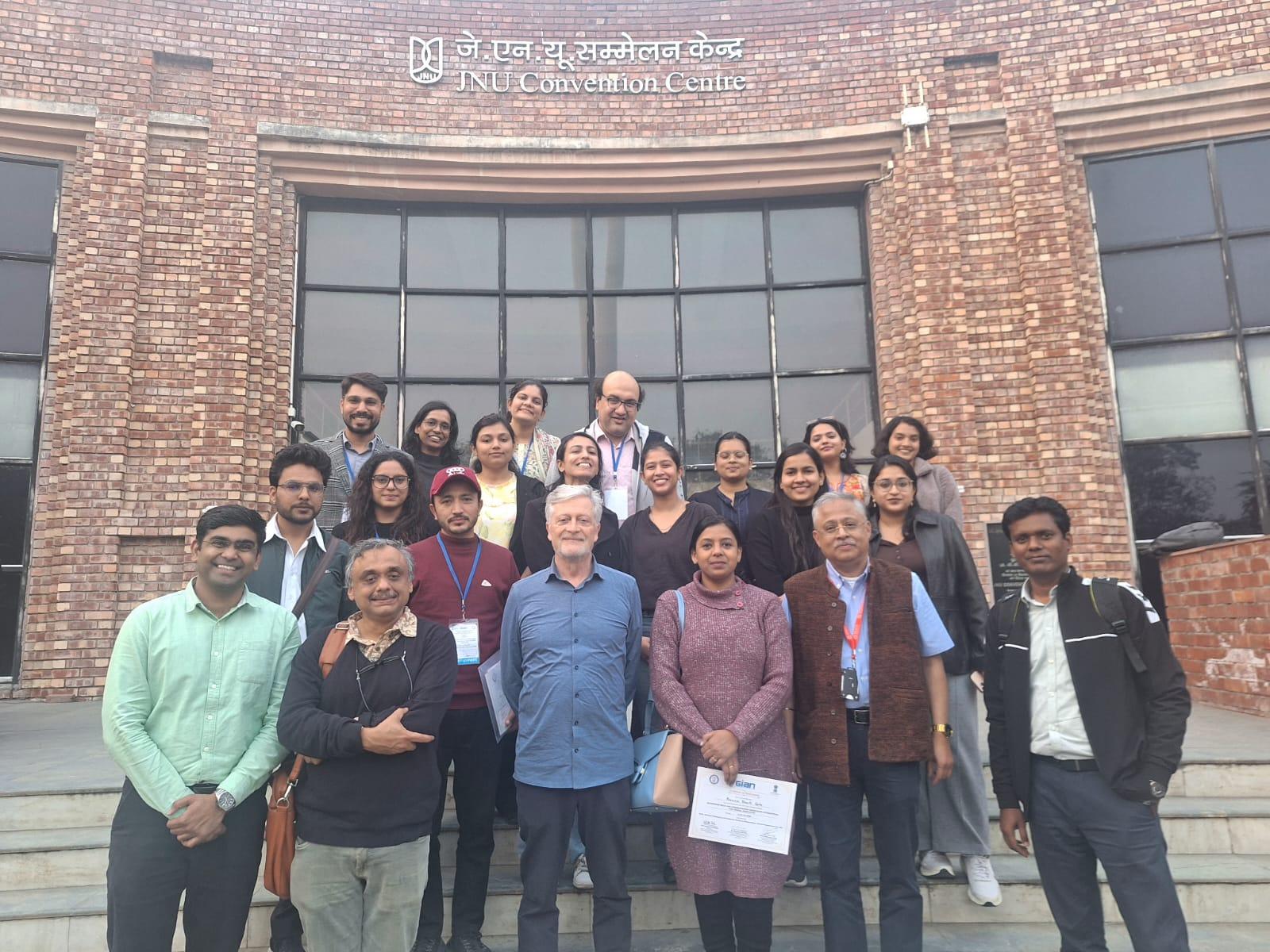How can frugal innovation drive sustainable impact in diverse global contexts? This question was at the heart of the GIAN training, Quadruple Helix and Strengthening Knowledge Interactions for Frugal Innovation, held at Jawaharlal Nehru University (JNU) in February 2025. The program brought together researchers, policymakers, and industry professionals to explore how multi-stakeholder collaboration can fuel inclusive and resource-efficient innovation.
A Meeting of Minds: India & The Netherlands
 The training underscored the complementary strengths of India and the Netherlands in advancing frugal innovation. India is widely recognized as the home of impactful, grassroots-driven frugal solutions, while the Netherlands has developed expertise in co-creation through its Quadruple Helix approach. This model brings together government, academia, industry, and civil society to foster sustainable innovation through collaboration.
The training underscored the complementary strengths of India and the Netherlands in advancing frugal innovation. India is widely recognized as the home of impactful, grassroots-driven frugal solutions, while the Netherlands has developed expertise in co-creation through its Quadruple Helix approach. This model brings together government, academia, industry, and civil society to foster sustainable innovation through collaboration.
Participants examined Dutch best practices in water management and agro-food sectors and debated whether similar co-creation processes could be adapted to India’s unique socio-economic landscape. While the Quadruple Helix has been effective in several domains, the training also explored why it has faced challenges in areas like energy and shipbuilding, highlighting the importance of context-specific strategies.
Beyond Theory: Simulation for Real-World Application
One of the highlights of the training was a simulation exercise, allowing participants to step into the roles of different stakeholders within the innovation ecosystem. This interactive approach helped bridge the gap between theory and practice, emphasizing the need for trust, mutual respect, and dynamic knowledge exchange among universities, businesses, and local communities.
The Bigger Picture: Frugal Innovation & Planetary Boundaries
Experts from The Nethelands and India shed light on how frugal innovation intersects with global challenges such as resource depletion, climate change, and inequality. The discussions expanded beyond frugality in business and public services, touching on broader themes of circular economy, grassroots entrepreneurship, and system transformation.
Interdisciplinary collaboration emerged as a key enabler in creating breakthrough innovations that align with planetary boundaries. From designing low-cost medical devices to scaling sustainable agricultural practices, frugal innovation offers scalable solutions to pressing global issues.
What’s Next? Embedding Frugality in Innovation Ecosystems
The training reinforced that frugal innovation is not merely about cost-cutting—it is about rethinking innovation models to achieve more with less. Moving forward, the challenge lies in institutionalizing these approaches within academic research, corporate R&D, and policy frameworks. . Two concrete follow up activities are related to implementing the new ICFI Business Plan 2025-2029. First, Peter Knorringa had discussions with Dr Bibhuti Ranjan Bhattacharjya – who also presented a case study in the course – to collaborate with IIT Roorkee in setting up a Frugal innovation Living Lab. Second, the course material on comparing frugal innovation experiences and policies between India and the Netherlands will be used also in a new teaching offering by ICFI as part of our strategy to offer smaller flexible modules on frugal innovation that can be incorporated in a variety of Master level programs in Leiden-Delft Erasmus Universities.
